Plastics in the ocean

By Jaimy de Vries
The plastic consumption increased rapidly over the last century and we’ve became a throw-away-society. Plastic is easy, it’s durable and if its broken we just dispose it. We think when we throw something away into the garbage it just magical disappears. Well unfortunately it doesn’t magically disappear, in fact a part of it reach the ocean and can do a lot of harm for the wildlife. What I didn’t know was that it can have a big effect on us too.
Plastic consumption
In the last ten years we have produced more plastic than in the previous century. Plastic is a wonderful invention because it’s durable (lunch boxes), but that also makes it terrible invention (it takes 500 year before it perish). At this moment the world produces 500 billion of plastics every year. Every person consumes 136 kg per year. But a lot of it reach the ocean, approximately 8 billion kg of plastics each year reach the ocean. You can compare this with 4 big garbage trucks emptying their garbage in the season for every 5 minutes. At this moment we have around 6 trillion pieces of plastics in the ocean.
We became a throw-away-society. We like things that we can throw away, because it saves us time. We like convenience, we like fast, we like cheap – we like to throw away when something breaks, we don’t like to repair anymore. We think that when we throw something into the garbage it just magically disappears.
The first question we need to ask is: why is there garbage in the sea? How does plastic end up in the ocean? Is it a matter of people throwing their trash directly into the sea? Well, it is one of the ways trash ends up in the sea, but by far not the most impactful one. The main causes are 1) decades of poor waste management, especially in regards to plastics 2) Consumers 3) Illegal practices, for example from fisheries.
Micro plastics
But what I didn’t know was that many clothes and personal care products are made of plastics too, what also reach the sea. 60% of our clothing is made out of plastics. These are the clothes that consist acryl, polyester, cotton-polyester. Through washing our clothes microfibers gets into the drain and reach the ocean. And there are lots of microplastics in our personal care products. Try to take a look at your shower gel, your tooth paste, your body scrub, your body lotion – anything that has glittering particles in it has Microplastics!
On the video below you can see how the plastics reach the ocean and how it starts making his way up to the food chain.
We eat one credit card a week
We know that wildlife gets hurt or die because of the plastics in the ocean. But it hurts us too, because the microplastics gets in the food chain too. Plankton eats microplastic, a small fish eats the plankton. A bigger fish eats the smaller fish and we catch the big fish and eat it…and that’s how the microplastics gets on our plate too. We eat one credit card a week of plastics. Studies shown that this has negative side effects for us on our endocrine system, our reproduction and it has neurotoxic effects.
And now? What can we do?
It’s depressing that so much damaged is already done, but there are small things we can do. The key words are: Reduce, reuse, recycle. There are some simple things we can try, for example buy a filter for your washing machine of wash your clothes less.
In the pictures down below you see lots of tips how you can help to reduce, reuse and recycle plastic to help keep our ocean clean!
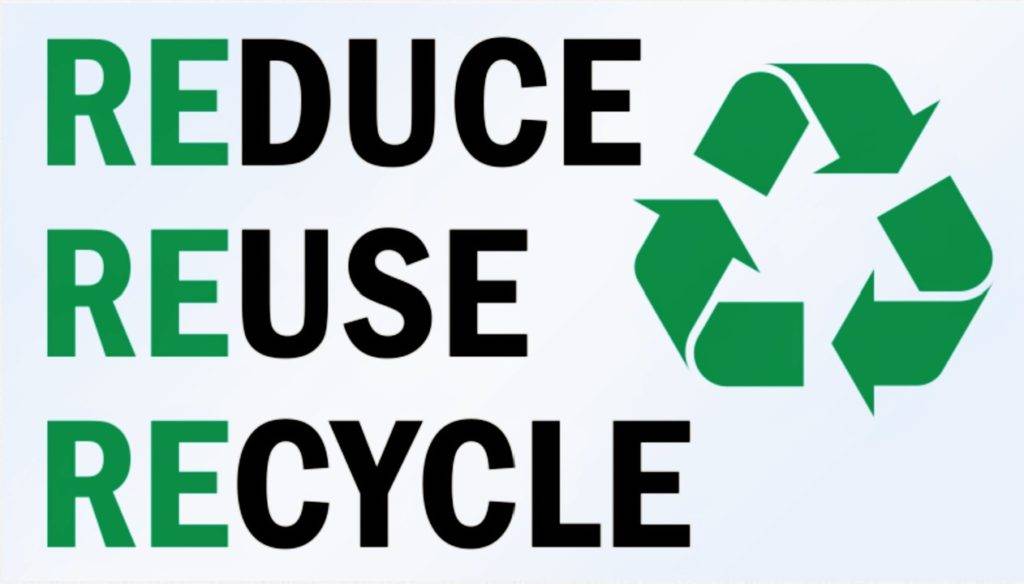
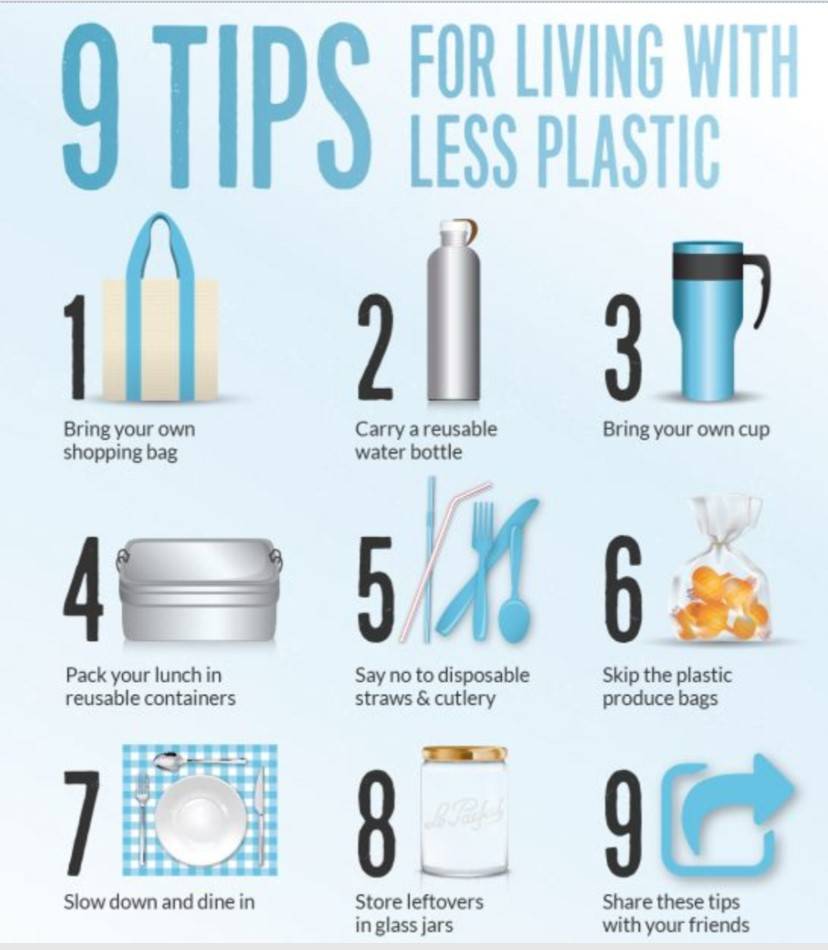
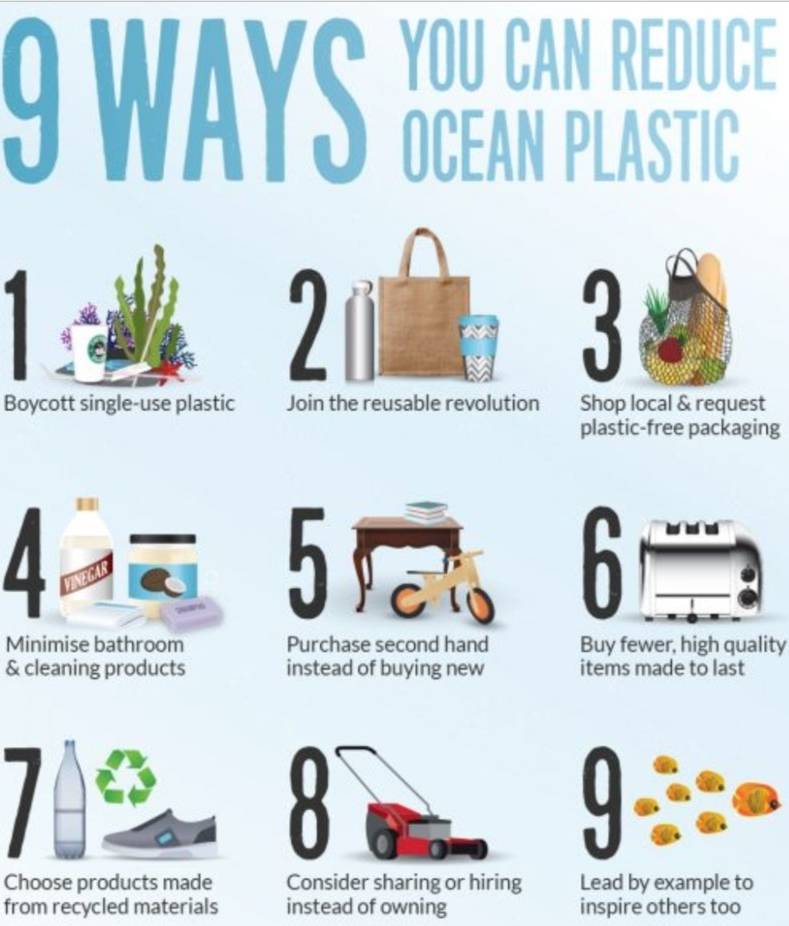
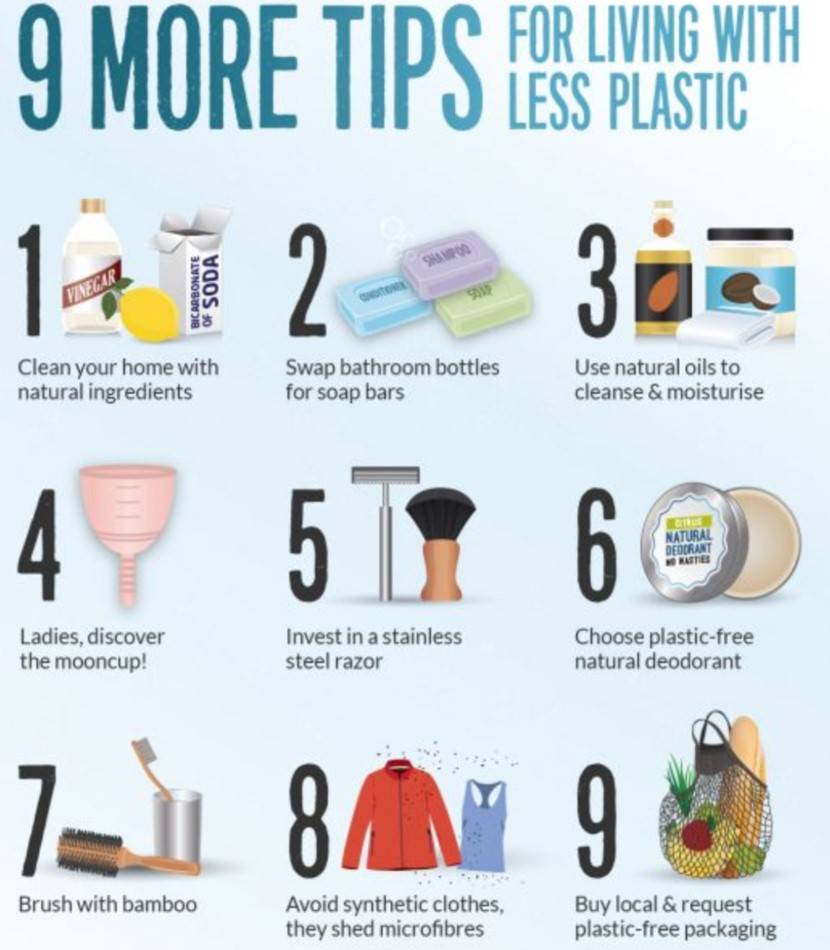
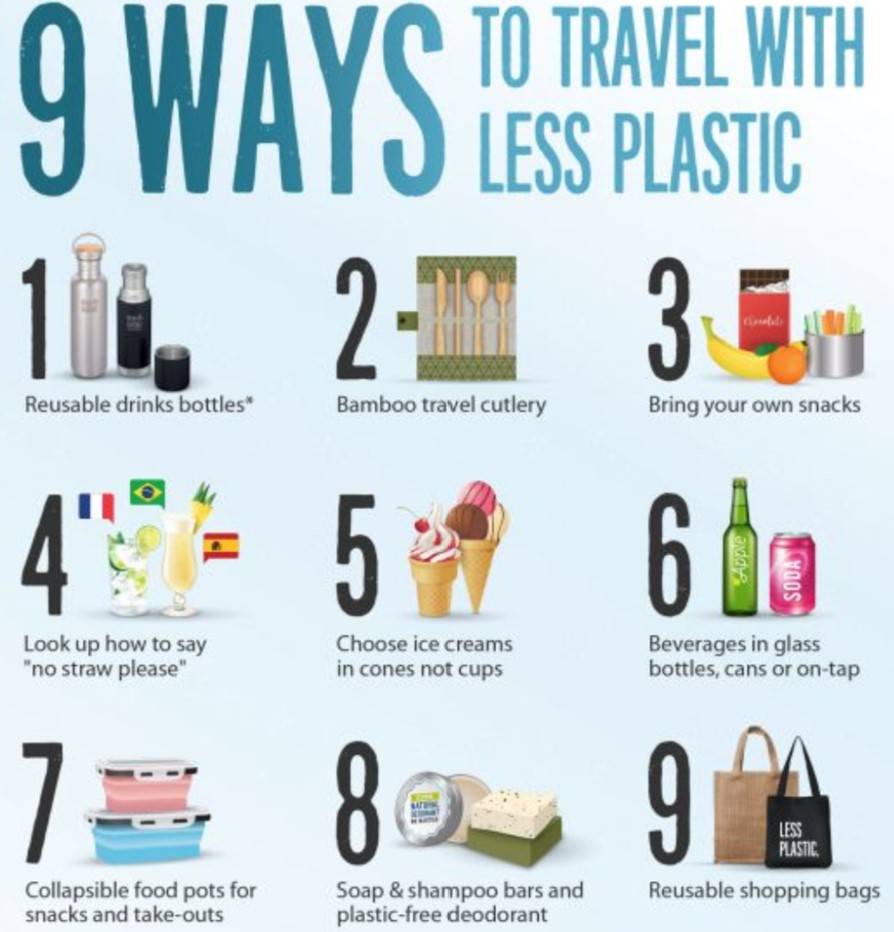
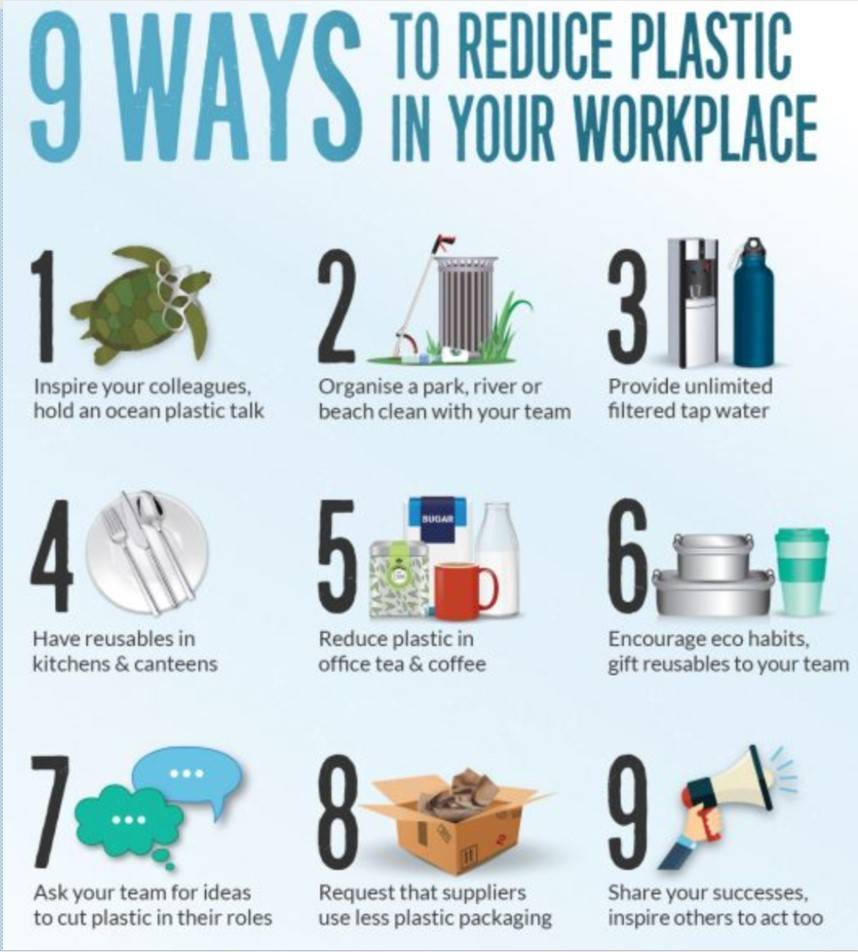
But still not much will change, except if the government takes action. It can help to form groups and alarm the government to make a change, to make it possible to help reduce, reuse and recycle plastics.